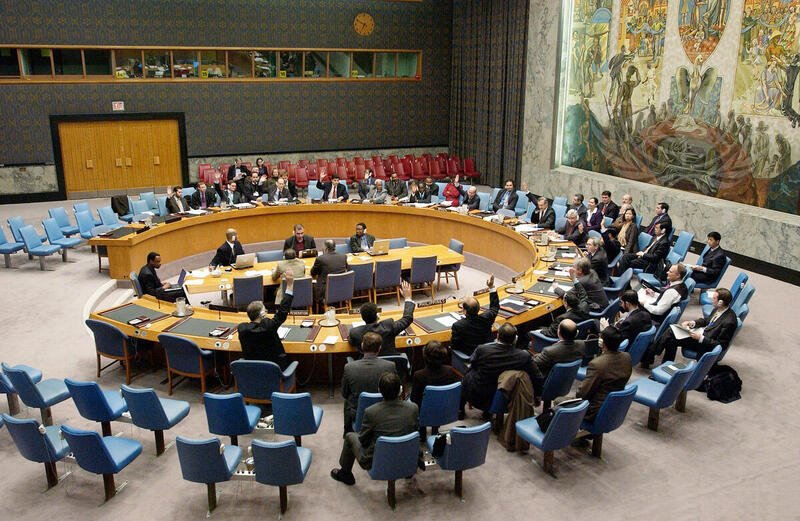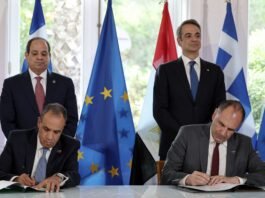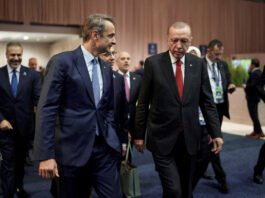Overview of the Security Council Sanctions Committee
The United Nations Security Council Sanctions Committee plays a pivotal role in addressing the threats posed by terrorist organizations, notably ISIL (Da’esh) and Al-Qaida. Established under the auspices of the Security Council, the Committee administers sanctions that are designed to impede the operational capabilities of these groups. The legal framework underpinning these measures is enshrined in several key resolutions, namely Resolution 1267, which was adopted in 1999, as well as subsequent resolutions 1989 and 2253. These resolutions collectively establish criteria for identifying individuals and entities associated with terrorism, enabling the Committee to impose targeted sanctions.
The significance of these sanctions lies not only in the specific punitive measures that can be levied—such as asset freezes, travel bans, and arms embargoes—but also in their broader implications for international security. Sanctions under the Security Council represent a consensus among member states regarding the serious threat posed by terrorism. By operationalizing Chapter VII of the UN Charter, which empowers the Security Council to take measures to maintain or restore international peace and security, these sanctions serve as a crucial tool for global counter-terrorism efforts.
Furthermore, the sanctions list curated by the Committee is critical in facilitating the shared commitment of nations to combat terrorism. It provides a framework for member states to cooperate in disrupting the funding and operational networks of ISIL (Da’esh) and Al-Qaida. By adhering to the guidelines set forth in the sanctions list, countries enhance their ability to prevent the proliferation of terrorist activities. Overall, the role of the Security Council Sanctions Committee is indispensable in the ongoing fight against terrorism and in reinforcing international collaboration aimed at maintaining peace and security worldwide.
Details of the Recent Amendment on October 16, 2025
On October 16, 2025, significant amendments were made to the ISIL (Da’esh) and Al-Qaida Sanctions List, which included changes to the entries associated with various individuals. One notable individual affected by this amendment is Ahmad Hussain Al-Sharaa, commonly known by his alias, Abu Mohammed Al-Jawlani. The updated sanctions list provides pivotal information regarding his identity and activities that warrant the enforcement of such preventive measures.
Ahmad Hussain Al-Sharaa was born on July 19, 1980, in Syria. As the leader of the Al-Nusrah Front, Al-Jawlani has played a crucial role in directing the group’s operations and strategies. The Al-Nusrah Front is recognized as an affiliate of Al-Qaida and has been actively engaged in violent extremism and terrorist activities within the region. His leadership has significantly contributed to the influence and reach of the organization, necessitating the recent updates to the sanctions list to restrict his operational capabilities.
Additionally, the amended entry highlights various aliases associated with Al-Jawlani, which may be employed by him to circumvent sanctions and law enforcement efforts. Such aliases enhance his ability to network and collaborate with other designated individuals within the spectrum of extremist groups. Understanding these connections and language variations is crucial for law enforcement and intelligence agencies as they work to counteract terrorism and its associated threats.
These changes not only emphasize the identity of Ahmed Hussain Al-Sharaa but also draw attention to the broader context in which his extremism operates. The amendments aim to disrupt the networks that perpetuate violence and radical ideologies by carefully monitoring those at the helm of influential terrorist organizations. The sanctions serve as a crucial instrument in international efforts to uphold peace and security, targeting individuals that actively contribute to global terrorism.
Impact and Implications of the Sanctions
The imposition of targeted sanctions on individuals such as Abu Mohammed Al-Jawlani has significant implications for counter-terrorism strategies and national security. These sanctions, designed to mitigate the influence and capabilities of specific terrorist actors, serve to disrupt the operational networks that underpin various terrorist organizations. By freezing assets and imposing travel restrictions, these measures aim to inhibit the ability of individuals to engage in activities that promote or fund terrorism. Moreover, targeted sanctions can act as a deterrent by indicating the international community’s resolve to combat extremists and their networks.
However, the enforcement of these sanctions poses challenges for member states. Different jurisdictions may have varying degrees of resources, expertise, and political will needed to implement and monitor these measures effectively. This disparity can lead to gaps in enforcement, which may allow sanctioned individuals to maintain a degree of operational latitude despite international efforts to curb their activities. Additionally, conflicting national interests and diplomatic relations can impact a state’s commitment to upholding these sanctions.
Cooperation among international actors is thus essential for the efficacy of sanctions in counter-terrorism efforts. Enhanced collaboration can promote intelligence-sharing, strengthen legal frameworks, and facilitate joint actions against individuals and groups on the sanctions list. Nonetheless, the effectiveness of sanctions is often subject to criticism, with some scholars arguing that punitive measures alone do not address the underlying issues fueling terrorism, such as political grievances and socio-economic instability. Critics contend that without addressing these root causes, sanctions can sometimes exacerbate existing tensions and contribute to cycles of violence.
As the international community continues to refine its approach to counter-terrorism, the implications of targeted sanctions will remain a crucial topic of discussion. A balanced understanding of their impacts, complimented by broader strategies aimed at prevention and conflict resolution, is essential in fostering global security.
Accessing the Sanctions List and Additional Resources
Accessing the updated ISIL (Da’esh) and Al-Qaida sanctions list is crucial for individuals and organizations involved in compliance and counter-terrorism efforts. The most reliable source for this information is the United Nations Security Council’s official website. The sanctions list provides comprehensive details about individuals and entities that are subject to asset freezes, travel bans, and arms embargoes. To access the sanctions list, visit the UN Security Council’s 1267/1989 Committee webpage, where you will find the current listings along with specific narratives that outline the reasons for each designation.
In addition to the official sanctions list, the UN Security Council offers supplementary materials that provide context for the sanctions. These narratives help explain the designation process, the background of the listed individuals and entities, and the ongoing threats they pose. By reviewing these resources, stakeholders can enhance their understanding of the rationale behind each listing, which is essential for effective implementation of counter-terrorism measures within their operations.
Furthermore, it is advisable to stay updated with any changes to the sanctions list and related resolutions. The UN Security Council routinely reviews and updates the list, reflecting new intelligence and developments in international security. Additionally, other valuable resources include the Financial Action Task Force (FATF) and national regulatory bodies, which often issue guidelines and updates relevant to sanctions compliance.
Overall, regular engagement with these resources is paramount for individuals, businesses, and governmental agencies committed to adhering to international sanctions and understanding the broader implications of these measures in the fight against terrorism. Keeping informed ensures that all involved parties can navigate the complexities of these regulations effectively.




